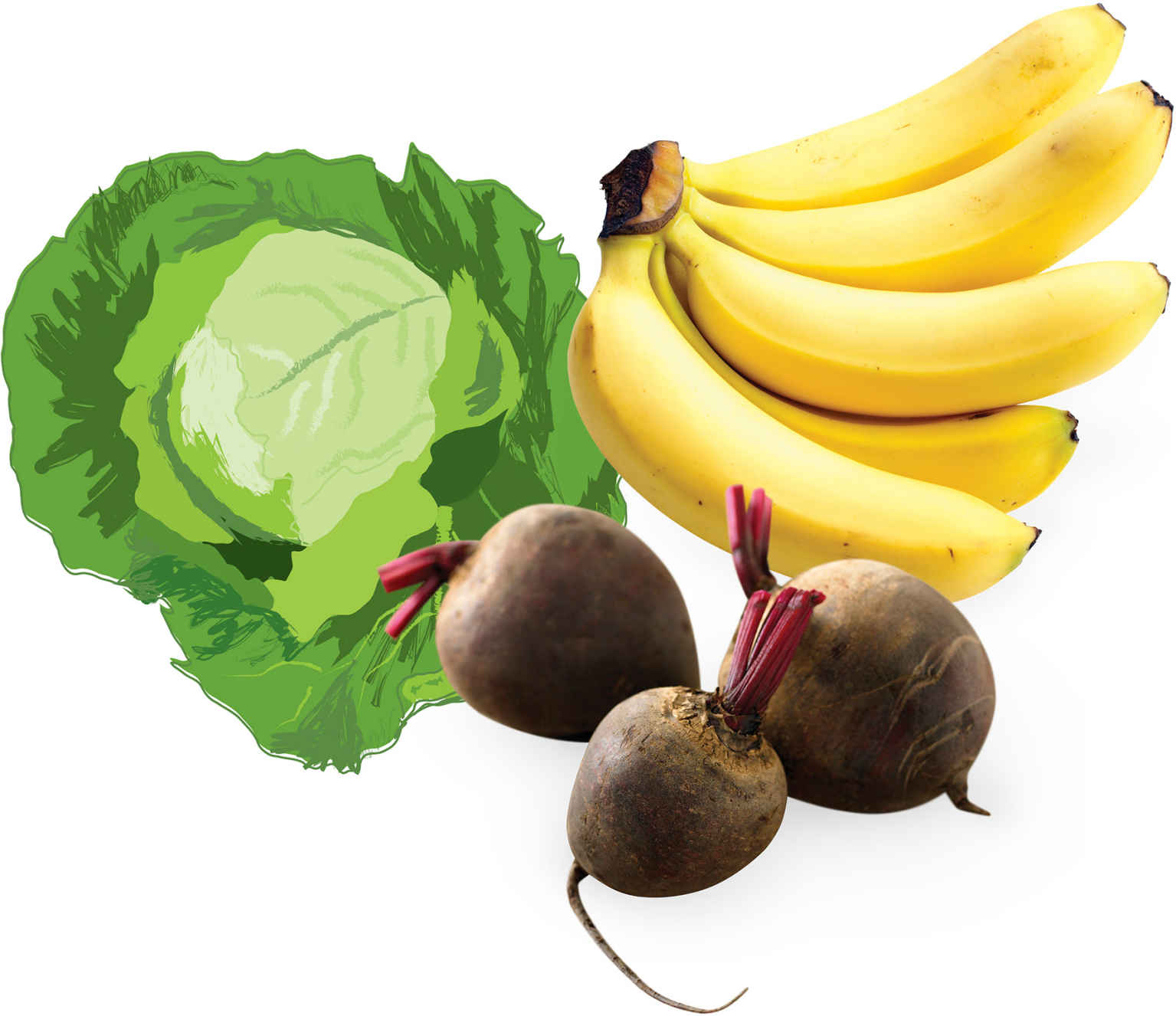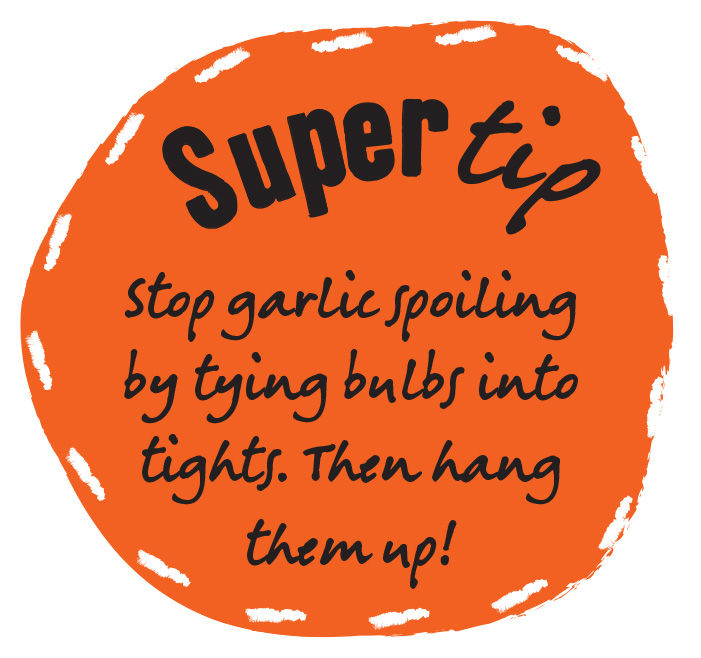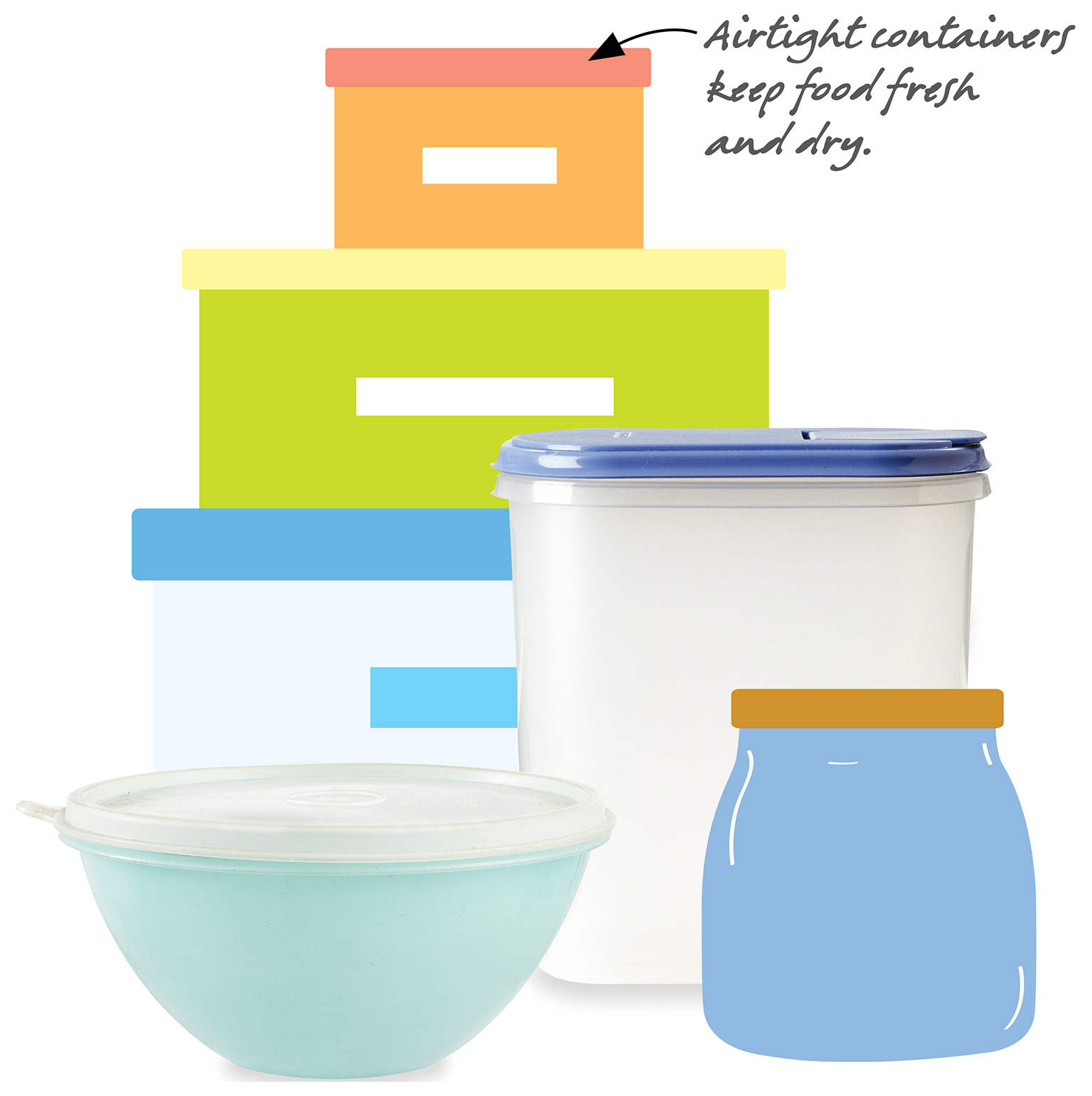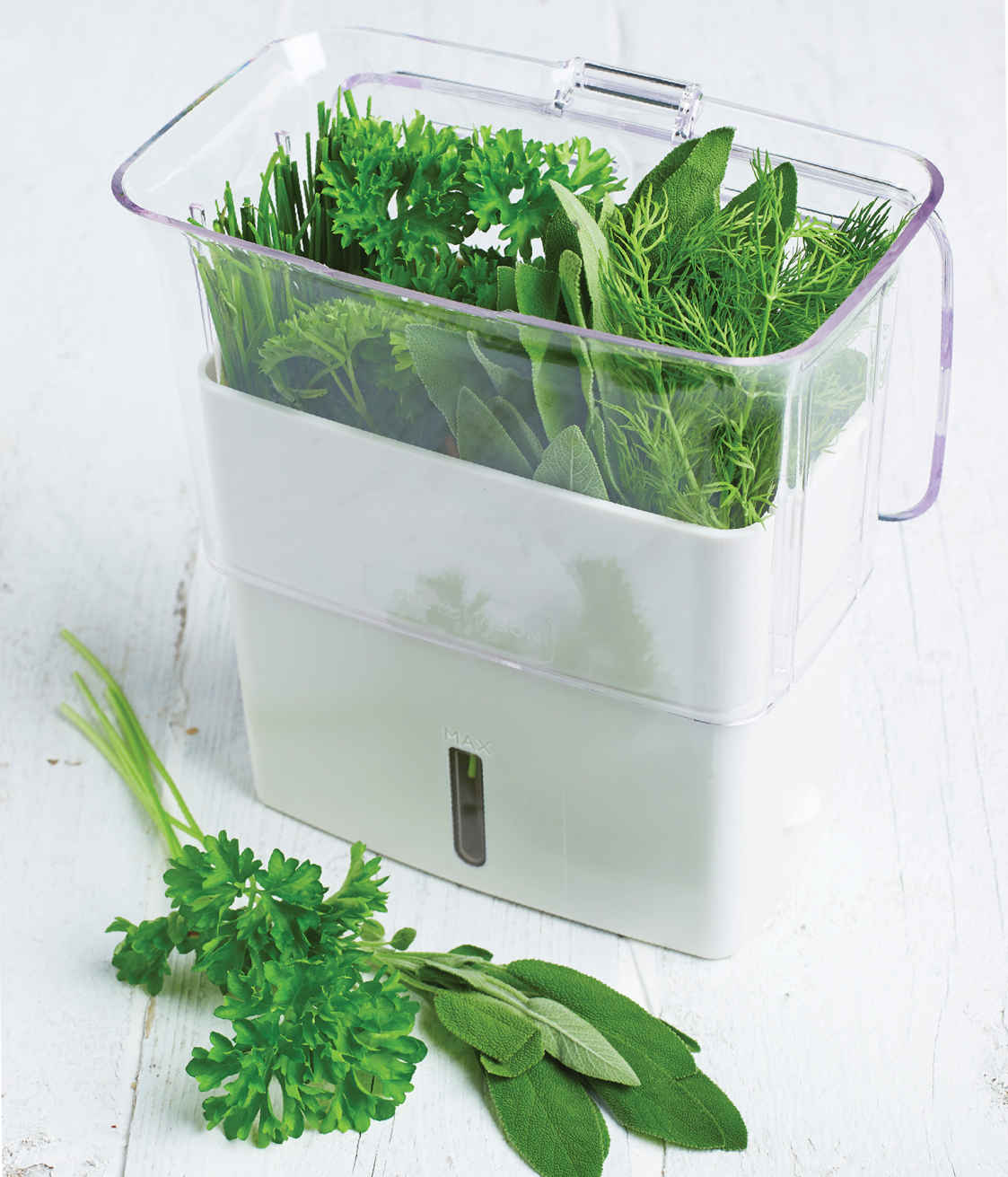
Store it right!
Storing your produce in the right way can be the difference between making the most of your food and throwing it out .

Where should I store it?
Check labels when you put your shopping away as many products carry storage instructions.

Once opened, some items need to go in the fridge and be used within a few days, so note when you open the pack. Store salad items and leafy greens in the salad drawer of your fridge. If your fruits need to ripen before eating, don’t chill them, leave them out in a fruit bowl until they are ready. Your kitchen cupboard is great for shutting out light so keep spices, oils, and some veg – such as onions and root vegetables – dry and dark, in here.
What should I put it in?
Reusable containers do a great job at cutting down waste.

Using the right containers keeps your food in tip-top condition for as long as possible. Transfer dried goods, such as spices or pasta and rice, to air-tight glass, or ceramic jars to keep them fresh for six months or more. While plastic is easy to carry around for food-on-the-go, it should only be used for cold food, as high tempertaures can cause it to break down. In the fridge, keep asparagus, cucumber, carrots, and celery fresh by popping them upright in a jar of water.

Be prepared!
With a little prep, some foods can be stored for much longer.

Blanching vegetables , such as green beans, before freezing them not only makes them last longer but also brightens their colour and slows nutrient loss. Pop them in the freezer on a baking sheet then transfer to an airtight container – they will keep for up to 10 months.
Drying vegetables , such as onions and chillies, for storage is easy. Use a dehydrator for fleshy chillies. For waxy varieties, wash them in salt water, then pop them on a wire rack in a warm, dry spot – a windowsill is good. In a few weeks you will have a batch of dried chillies.
A little extra help…
You don’t need to use fancy gadgets and gizmos to go zero-waste but some ingenious inventions can help.
• A dehydrator is handy for preserving fruit, veg, herbs, and even meat. It gently dries food out while preserving nutrients and flavour.
• Vacuum-packing your food preserves freshness by removing air and saves valuable space.
• A cut-herb keeper will help your herbs stay fresher for longer by suspending them in water.

Cut-herb keeper